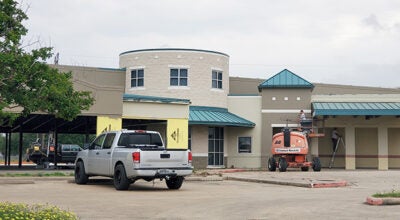Storms can take mental toll too
Published 12:13 am Saturday, July 13, 2019
Just days ago, during early weather forecasts, Southeast Texas was in the possible path of what has become a tropical storm and may soon be a hurricane.
The storm — which is now expected to hit south central Louisiana Saturday morning as a category one hurricane — likely brought on fears from residents who dealt with Hurricane and Tropical Storm Harvey’s devastating flooding less than two years ago.
Those feelings are very real and normal, and there is hope.
Acute stress disorder and post traumatic stress disorder
Rita Drake, licensed professional counselor-supervisor with Spindletop Center, said acute stress disorder is a condition in which something terrible happens that results in an immediate emotional and physiological response a person will have to that event.
“That can be extremely traumatic,” Drake said. “Functioning will become difficult to carry on any relationship in your work, your health, and during that time people can even require hospitalization, and some become so distraught they will even think of suicide.”
Hurricane Harvey had cities underwater, boat and helicopter rescues, homes destroyed plus loss of personal belongings among other issues.
The human body is resilient and adapts, however there can be flashbacks and extremely terrible nightmares. Intrusive, distressing recollections can cause a person to become hypervigilant and anxious, and this can affect the body too, Drake said.
“You can have a panic attack, racing heart, difficulty breathing, sweating, nausea and dizziness. So as time goes by a person will pretty much, for the most part, adapt but still the maladaptive fear can go on as triggered.”
Time goes by, there may be panic attacks. A person may have went through the last hurricane and saw water creep up their walls, the person saw mold in their house, and a couple of years later every time hurricane season comes around that person becomes hypervigilant.
Drake has worked with many people though her 30 years in the field and told of how, when talking to Hurricane Katrina survivors who lost everything, looked back at the smallest of things — “my grandmother’s watch was back there and I couldn’t get it.”
“That feeling of loss,” she said. “Their equilibrium is totally knocked out of whack.”
The past storm survivors, whether from Katrina in New Orleans or Rita, Ike and Harvey in Port Arthur, can experience real physiological and physical problems, and anytime a threat appears it’s a trigger, indicative of post traumatic stress disorder.
“With PTSD a trigger will bring back those memories and they will feel just like that event is happening to them at that time. The smells, the sounds, it happens all over again,” she said.
There is hope
Drake said earlier in the week she sent her husband to the store for extra water and some non-perishables and he noted the water aisle was almost wiped out. She said people are being cautious, which is good and caution seems to help reduce anxiety.
Deep muscle relaxation techniques help calm the mind. Techniques include, for example, focusing on toes and relaxing them, then moving up the body relaxing in stages. Visual imagery is also a good tool.
“And hope. Hope is so curative,” she said. “The anxious stimuli, knowing a hurricane is coming your way, paired with relaxation, the anxiety is decreased.”
Taking control
Drake uses these techniques, for example, when she is going to have a medical procedure. She said she will breathe in 1-2-3, then out 1-2-3 and focus on breathing as she visualizes the most wonderful time she has had in life. When her thoughts go there and she focuses on this her heart rate will go down and she can think clearly.
Robin McCutcheon, executive director of Samaritan Counseling Center of Southeast Texas offered some tips as well:
- Do something positive: Donate blood, prepare care packages, or volunteer to help others, all of which can provide a sense of purpose in a situation that feels out of your control.
• Follow your usual daily routine as much as possible.
• Limit your exposure to repeated news stories, which usually increases stress.
• Rest, get exercise and eat properly. Seek out leisure and recreational activities that involve both mind and body.
• Spend time with trusted loved ones for support.
Talk with others and seek support from those who have been exposed to the same or similar trauma.
• Recognize that you cannot control everything.
Talk with a relative, friend, doctor, or spiritual advisor about getting help. Asking for help is a sign of strength, not of weakness.
• Contact a mental health professional if symptoms persist for more than a few weeks and interfere in your carrying out your daily activities.
How to get help
- To speak with the Spindletop Center Crisis Team call 1-800-937-8097
- The intake area at Spindletop Center is open from 8 a.m. to 5 p.m. at 2750 South Eighth St., Building A in Beaumont. It’s best to get there early as intake can take a few hours.
- Call the Spindletop Center for more information at 409-839-1063.
- Local hospitals have trained staff to help.
- If you are contemplating suicide call 911.
• Samaritan Counseling Center offers a variety of services including video therapy. For more information about their services call 409-727-6400.






